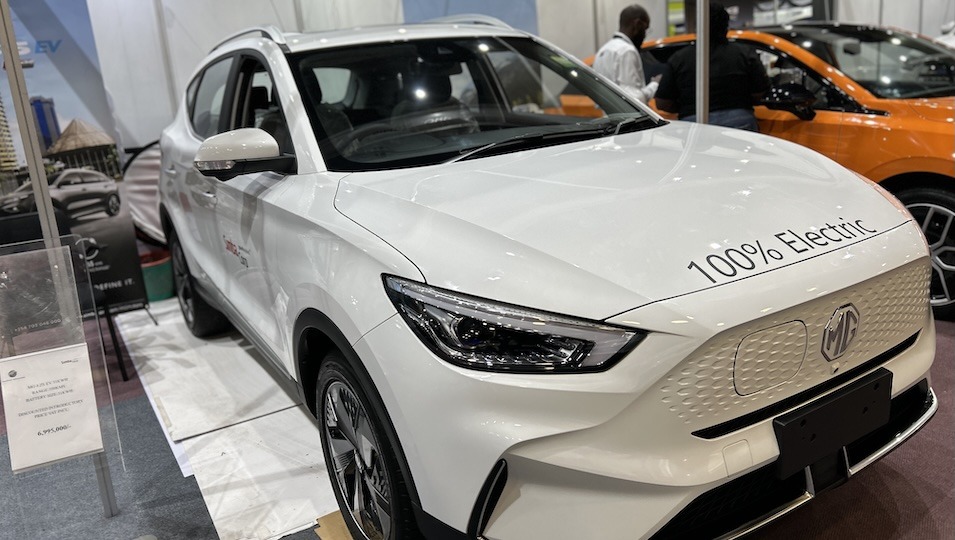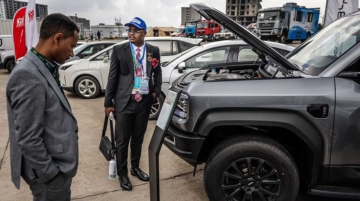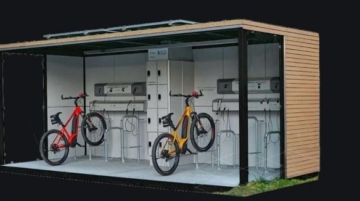
E-mobility startups in Kenya are rethinking how to do business in a country where prohibitive taxes are slowing the adoption of electric vehicles. To stay afloat—and expand—companies like Rideence and Ebikes Africa are leveraging Chinese electric vehicle (EV) technology while building creative business models around leasing and service partnerships.
Rather than selling vehicles outright, these companies lease Chinese-made EVs to drivers and riders, spreading out the cost and absorbing the heavy import taxes that would otherwise make ownership unattainable.
Rideence, for example, leases its compact electric cars to drivers at $25 daily. Whatever the driver earns beyond that amount is theirs to keep.
But the economics behind the model is more complex.
According to Joseph Macharia, who manages Rideence’s ride-hailing business, the cars—available in China for between $6,500 and $8,500—are sold in Kenya for nearly $19,230. That steep price reflects a range of Kenyan import tariffs, which add around 55% to the vehicle’s original cost, making most new cars unaffordable for the average consumer.
It would take a driver roughly two years to fully pay for the vehicle at that price. The driver, though, never gets to own the car, even after two years of regular payments, as Rideence only offers EV lease agreements without the option of ownership, according to Macharia.

Pay-As-You-Go Payment Plans
Unlike Rideence, Ebikes Africa is providing a route to e-mobility ownership. The startup offers electric bikes for $760, which riders pay off over eleven months by contributing roughly three dollars daily.
Ebikes Africa automatically connects interested riders to an Uber-style restaurant and delivery services which helps provide a steady income stream for the young riders who are either fresh out of school or those just getting into the job market through the gig economy.
Jorgs Mbugua, the company’s founder and CEO, says that once the bike is fully paid for, riders take full ownership and can continue with the delivery partnerships or pursue independent work.

High-Tax Minefield Slowing EV Adoption in Kenya
While these workarounds offer glimmers of hope, the broader challenge remains: Kenya’s tax burden on electric vehicles is making it harder for the country to realize the full benefits of Chinese EV tech. And that’s no small loss. China produces 60 percent of the world’s electric vehicles and dominates the global battery supply chain. It’s become the linchpin for affordable e-mobility solutions across the Global South.
Startups in Kenya benefit from this dominance in three key ways:
- Low-cost hardware such as bikes and compact cars;
- Modular vehicle designs that allow for local customization;
- Battery innovation, including second-life lithium-ion and sodium-ion battery tech that reduces operational costs.
For instance, Ebikes Africa has begun rolling out electric wheelchairs designed for rough terrain and fitted with swappable battery packs—perfect for areas with unreliable grid access. These wheelchairs are powered using repurposed batteries, plastic components and motors from China.
These innovations are helping build a case for EV adoption from the ground up. But without tax reform, the progress may stall.
And that’s a problem. Kenya faces rising fuel prices, rapid urbanization, and mounting environmental pressures. E-mobility offers a path forward, but the road is increasingly steep.
Rideence and Ebikes Africa are showing what’s possible: leasing, battery swapping, and integrated fleet services. They’re not just putting EVs on the road—they’re redefining ownership in a market that can’t afford to buy.
Still, no amount of innovation can fully compensate for a hostile policy environment. If things don’t change soon, Chinese EV manufacturers, who currently dominate the space—may take their business elsewhere.
And Kenya will lose more than just a few startups. It’ll miss the future of clean, affordable transport.







